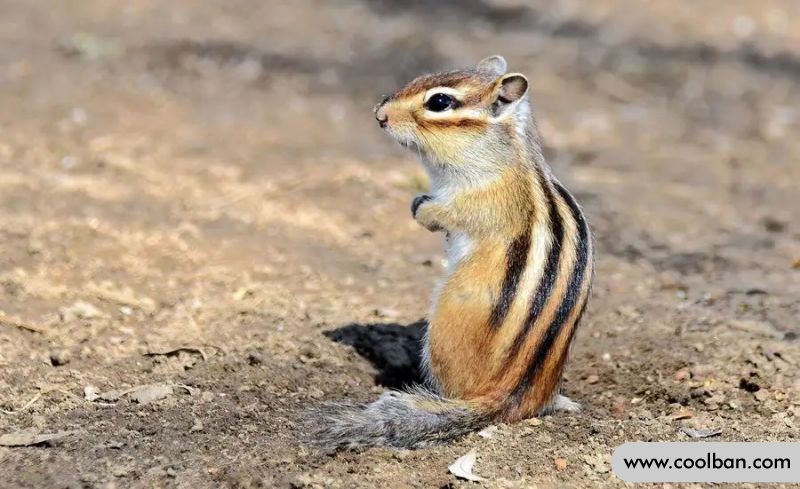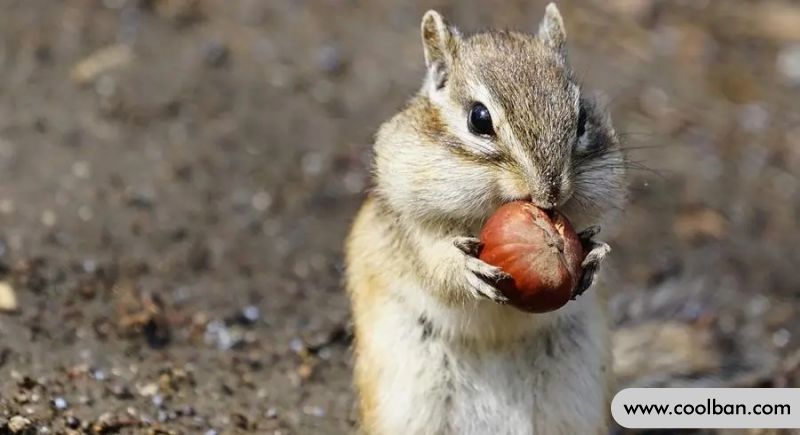Feeding knowledge of chipmunks
Chipmunks have big eyes that make them look smart. The slender tail is close to the length of the body. As squirrels they love to climb which is their specialty. The difference between males and females is relatively simple. Chipmunks can be easily identified by their five characteristic stripes. An adult chipmunk is about 15 cm long and has a tail about 12 cm long.
Chipmunk breeding knowledge
Chipmunks are very sensitive to the odors of their surroundings. It's best to change the bedding for them so they don't feel uncomfortable. Of course, when changing bedding, you need to be aware that chipmunks will take the opportunity to escape. If you run away, you should grab the tail immediately, but the tail is easy to break, and once it is broken, it will not grow back.
Chipmunks need to be kept clean, but bathing is not necessary! Chipmunks love cleanliness and wash themselves most of the time. If the breeder wants to bathe, make sure you have a good relationship with the chipmunk and trust you. Make sure you hold it in your hand and it won't run away, otherwise please don't bathe the chipmunk. Chipmunks are very afraid of water, and bathing is prone to accidents when they are young. Even in adulthood, it will be frightened and cause a crisis of confidence. In addition, the improper operation of the breeder will also cause the chipmunk to drown and choke to death, and it is easy to catch a cold after washing! Do not use bath sand, chipmunks have small pores, and the particles of bath sand are too fine to block pores!
If you want to keep the chipmunk clean, cleaning is the last word of the breeder! Clean bedpans, change bedding, wooden nests, hammocks, water bottles, etc. to ensure your health. For breeders who insist on bathing, watering the chipmunk is just fine. The water temperature should be kept at 30-40 degrees. It's too cold and the chipmunk gets a cold, not to mention the heat.

Chipmunk feeding point
To keep a healthy and long-lived chipmunk, it is not only necessary to give them a comfortable nest, but also the key to diet. In order to express love, more and more breeders like to feed human food, so is this feeding method advisable? Here's a detailed guide on how to feed your chipmunk.
1. Diet
The chipmunk is omnivorous and can eat almost any food, but its staple food is a variety of nuts.
2. Moisture
Chipmunks don't need to drink water. If you want to drink, remember to boil the water to ensure that the water source is absolutely clean. Some breeders feed them fruits and vegetables for water. Since they are so small, a little moisture is enough! They like to eat green vegetables, remember that green vegetables must be rinsed and air-dried. Yellow sprouts and cabbage are also good! But clean up! Things like tomatoes, cucumbers, apples and oranges can be eaten by them.
3. Sunflower seeds
There are also many types of melon seeds, such as sunflower seeds, pumpkin seeds, watermelon seeds, etc., which chipmunks love to eat.
Chipmunks like to eat sunflower seeds, but the fat content of sunflower seeds is very high. Eating too many sunflower seeds will lead to obesity, partial eclipse, malnutrition and other problems. Therefore, sunflower seeds can only be used as snacks or non-essential items to enhance feelings. Do not feed too much, every meal One or two at most. However, if it's winter, you can add more heat to the chipmunk to get through the cold winter.

Food that cannot be eaten
Although the chipmunk is an omnivorous animal, it still has food that it cannot eat.
1. Spicy (irritating) food
Such as peppers, green peppers, onions, garlic, ginger, leeks, nine layers of culture and so on.
2. Peach, plum, apple and other kernels
It is said to cause an increased heart rate in chipmunks, which can lead to symptoms such as shock. The detailed reason is not very clear, but I prefer to believe and be careful. These foods are high in potassium ions, so it is easy to cause chipmunks to eat too much, tachycardia and death.
3. Human food
Foods eaten by humans are too oily and salty for chipmunks, which is very harmful to health, especially meat dishes or other greasy snacks, which should not be eaten!
